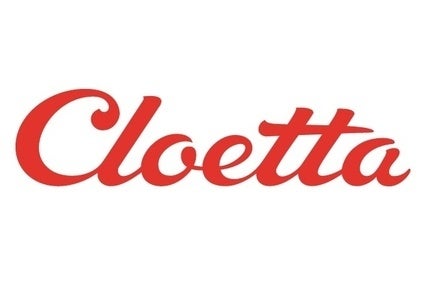
Two years after a mega-merger with fellow Sweden-based confectioner Leaf International, Cloetta is, according to CEO Bengt Baron, “delivering” on its growth strategy.
The company behind brands like Chewits, Sportlife and Sperlari today (18 July) reported its second-quarter results and highlighted a fourth consecutive quarter of sales growth.

Discover B2B Marketing That Performs
Combine business intelligence and editorial excellence to reach engaged professionals across 36 leading media platforms.
Baron said Cloetta, which has booked a slew of restructuring charges as it integrated Leaf, was seeing its profitability move “in the right direction”.
The numbers appear, in the main, encouraging. Sales and operating profit were up in the quarter. Both were helped by factors like foreign exchange or the continued reduction in restructuring costs, but organic sales were up and underlying EBIT showed improvement.
Over the first six months of the year, Cloetta did file a net loss of SEK3m amid higher finance costs. However, Baron was positive about Cloetta’s performance. “We are executing in line with the laid out strategy. The factory restructurings are virtually completed, organic sales are growing and we have been able to make complementary acquisitions to further boost the growth rate.”
Those acquisitions have been vital. Cloetta’s products are available in 40 countries but it generates the majority of its sales in markets in western and northern Europe – markets where growth is hard to come by.

US Tariffs are shifting - will you react or anticipate?
Don’t let policy changes catch you off guard. Stay proactive with real-time data and expert analysis.
By GlobalDataIn its second-quarter results statement, Cloetta again indicated the challenging conditions it was facing. “The market for confectionery has predominantly been flat-to-slightly negative in our markets, except Sweden, where the market was positive.” Finland “continued to be weak”. The Netherlands fell back after growing in the first quarter. Italy is still tough.
In short, Cloetta is a company doing business in markets where growth is weak at best and where it is a battle to retain market share. It has had to turn to M&A to bolster its top line.
Since the merger with Leaf, Cloetta has made three acquisitions: UK free-from candy maker Goody Good Stuff, snack nuts firm Nutisal; and, this May, Ireland’s Aran Candy, the group behind The Jelly Bean Factory.
Speaking after the results were announced, Baron told just-food Cloetta was ready to make more acquisitions. “We’re looking for interesting propositions that complement our portfolio, whether it’s within existing segments like Goody Good Stuff or Jelly Bean Factory or whether its complementary like Nutisal was,” he said.
Moving into areas like free-from could potentially be astute, with the growing demand for more natural confectionery. Acquiring Nutisal was a wise move given, as Danske Bank analyst Mikael Holm says, Cloetta was likely losing shelf space to the snack nuts segment. Jelly Bean gives Cloetta a stronger presence in the UK.
However, analysing the business, one is left wondering whether emerging markets are – and should be – on the radar. Baron says they are and insists Cloetta would look at the opportunites that arose but underlined the difficulty of building a presence in developing economies. M&A, he said, was more likely to come again in the company’s existing, developed markets.
“It’s not as easy getting into the emerging markets and I think a lot of our colleagues in the industry are finding that,” Baron said.
Cloetta is, then, a business facing a long-term growth trajectory that looks pretty slow at best, unless it continues to make acquisitions in niche segments in local markets. One could say Cloetta needs to be more bold but Holm, while acknowledging there could be a “growth problem” for company, believes it is not the right time to go for major deals. Cloetta, he says, has other attributes for investors.
“They don’t have the financial power in the next couple of years to make large acquisitions,” he says. “If you look at emerging markets, you do have to buy something to really get a presence, otherwise you do need to rely on others selling your products and that’s obviously a risk. There will be a growth problem but I don’t think it’s a good idea to expand at the wrong price. If you look at the sector, its valuation is at an all-time high.”
He adds: “I think of Cloetta more as value creation through its stable annual cash flow.”
As the dust settles after Cloetta’s merger with Leaf, the company does face a battle eking out growth in its key markets. However, it has set its sights on small, bolt-on deals in niche categories, rather than pushing the boat out and setting sail for growth in emerging markets.





